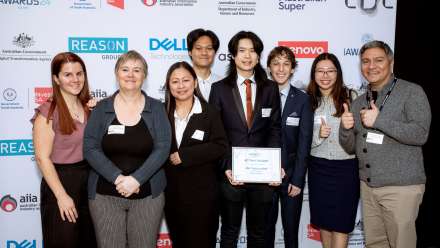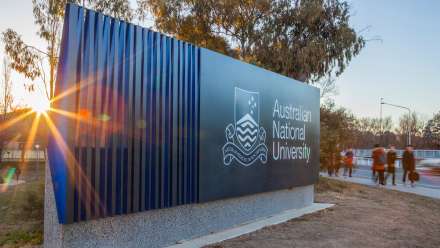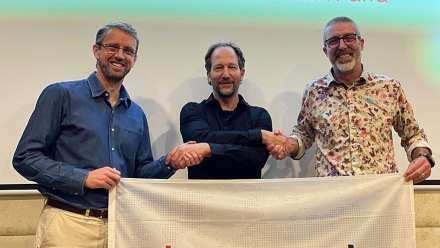Professor Ackland looks to the future of network science
With access to limitless information, instant communication and interconnected global communities at our fingertips, the internet can feel like a science fiction landscape.
The sci-fi nature of the internet is what first attracted computational social scientist Professor Robert Ackland to the research field of online social networks.
Robert started his academic life as an economist but says he always had a "non-professional" interest in the web as a socially constructed phenomenon.
"I enjoyed reading science fiction, especially cyberpunk novels like Neuromancer by William Gibson and its vision of cyberspace where advanced technologies enable networks between humans and machines," he says.
Professor Ackland, a researcher from the School of Sociology at The Australian National University (ANU), stepped away from traditional economics and now uses network science to study the social construction of the internet, how virtual communities form and how people behave online.
With expertise in social network analysis and computational methods, applied to political communication and the dissemination of information via social media, Professor Ackland has been a chief investigator on five Australian Research Council (ARC) grants and is currently leading the Australian contribution to a project funded under the Volkswagen Foundation's "Artificial Intelligence and the Society of the Future" initiative.
Under a 2005 ARC Special Research Initiative (e-Research Support) grant, he established the Virtual Observatory for the Study of Online Networks (VOSON) Lab, which develops open-source tools for the collection and analysis of network and text data from the web and social media.
Professor Ackland's research focus has shifted in recent times towards studying some of the societal problems that have emerged from online interactions, including echo chambers and online polarisation.
"In the early days of the web there was more optimism about the social and political impact of the technology, but there were always concerns that the personalisation of online experiences could contribute to a splintering of society," he says.
"It used to be that everyone consumed more-or-less the same political information through broadcast media, but the web allows people to choose the news sources they prefer and to easily connect with people who share their views."
Cyber-pessimism became more widespread in the aftermath of the 2016 US presidential election, with concerns about echo chambers, filter bubbles, foreign interference on social media, misinformation and social bots.
Along with research officer Francisca Borquez and research programmer Bryan Gertzel, the VOSON Lab is advancing research into the social and political impacts of digital platforms and continues to develop the open source VOSON software tools that are used by researchers around the world.
"Future research at the Lab will also focus on generative AI, which will lead to new types of autonomous agents that can be used for exerting influence in online political conversations," he says.
"We are also keeping an eye on changes to online platforms that we already collect data from, such as Twitter and Reddit, and developing new tools for collecting data from emerging platforms such as Mastodon. The internet is an ever-changing landscape and we're always looking to the future to see what's next."


